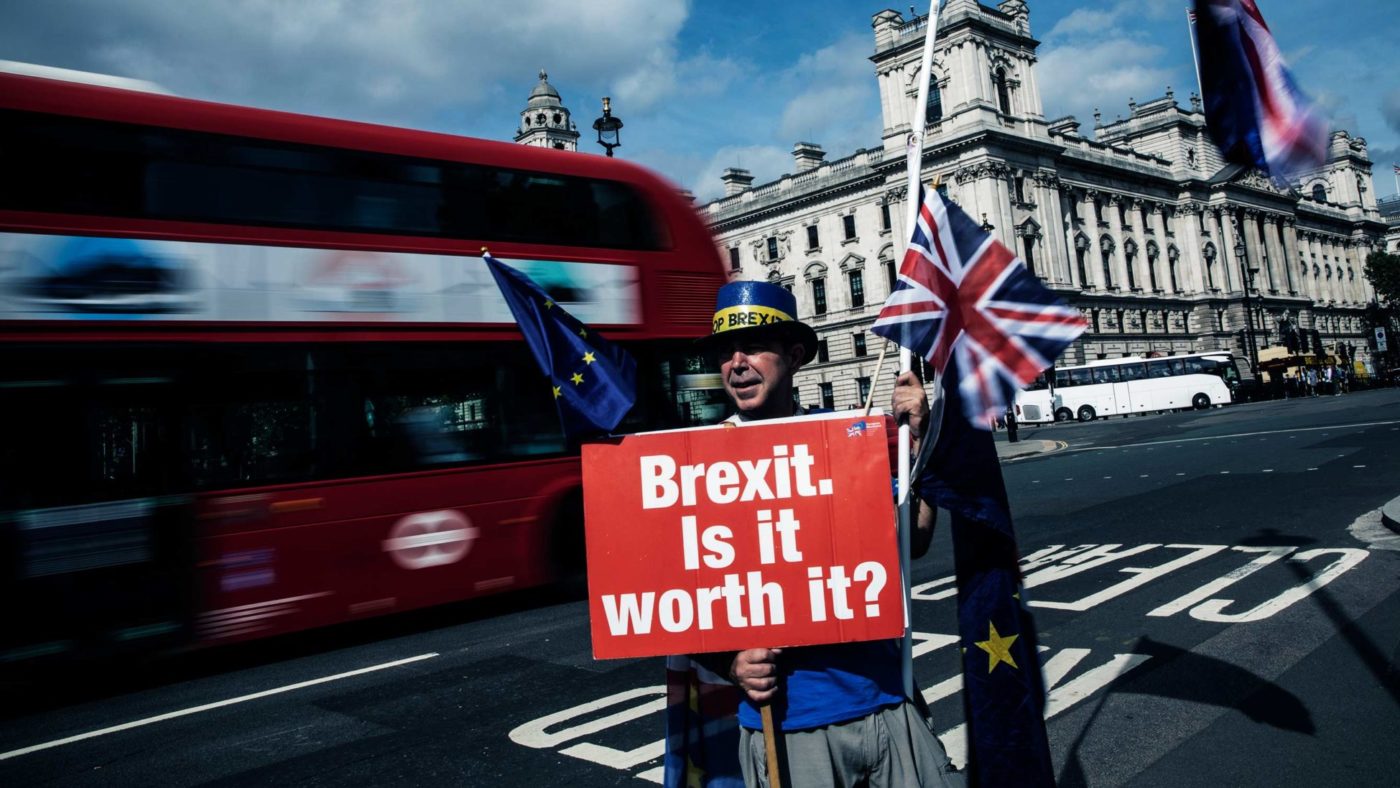Ever had a friend who constantly talked about themselves and their esoteric personal problems? Here is an Anglophile’s message to the British political class: Do not be that friend. Whatever you decide to do about Brexit is fine. Really, just do it and move on. Nobody wants to hear about it anymore.
Even in the era of internet and free information flows, the bandwidth for debates about public policy is limited. As Vladimir Putin is eroding Western resolve to uphold the territorial integrity of European countries, most notably Ukraine, the Middle East finds itself in turmoil, and the Donald Trump-led America risks undermining the foundation of the global trade regime, this might not be the best moment to ruminate over the relative merits of a Norway-style EEA model, Theresa May’s deal, “Canada +++”, or perhaps falling back on default WTO rules.
The 2016 referendum – which perhaps should not have been held in the first place – gave a political mandate for a Brexit, but not for any Brexit in particular. None of the options on the menu are objectively better than any other – rather, they all involve trade-offs between social goals that voters value.
A rejection of the free movement of people from the EU and autonomy of British trade policy – two ends that many Leave voters arguably sought – would disrupt existing economic ties to the continent. In contrast, if one’s goal is to minimise economic disruption, then staying in the single market is the best option, by far. Perhaps the economic damage of a hard Brexit would not amount to as drastic a contraction as the one projected by the Bank of England, but there would surely be some costs involved in the re-imposition of regulatory and tariff barriers between the UK and the EU.
Maybe those would be outweighed by opportunities that the globalised world offers to the UK. But that depends on whether the global economy remains as open as it is today or whether it is going to slowly deglobalise due to creeping protectionism and trade wars.
A few weeks ago, my AEI colleague Mike Strain and I argued for a second referendum in case May’s deal fails and the UK seems headed towards a hard Brexit or a Jeremy Corbyn-led government. The agreement reached with the EU is far from perfect but it is as good a compromise as any, given the impossible brief May was handed after the referendum.
What matters more than the details of the deal is that the world has not come to a standstill while Westminster is parsing through the technical nuances of the Irish backstop and the political declaration. There is Ukraine, Yemen, an erratic administration in Washington, and the rising Chinese influence throughout Asia and the Pacific.
Not only is this a different world to the one in which British voters decided to leave the EU, it is also one in which the UK is leaving an increasingly smaller geopolitical footprint – largely because of its somewhat narcissist pre-occupation with Brexit. And even if the UK is meeting NATO’s two-percent threshold, it is partly by counting war pensions as part of defence spending.
The same logic is true at home. The UK is living through its ninth year of successive Conservative-led governments. Those could have pursued far-reaching structural reforms to re-kindle growth, boost the housing stock, and expand economic opportunities, particularly to those on the bottom rungs of the economic ladder. Yet, a good part of those years have been instead spent debating the UK’s place in Europe and the various modalities of Brexit.
Meanwhile, the UK’s growth is projected at around 1.5 percent in the coming years (conditional on a smooth, trade-friendly Brexit) and the economy has so far recorded “weaker wage growth than any other advanced G-20 nation” this year. After nearly a decade with the Tory party and with that record, it is hard to blame the voters for being ready for an alternative – even if it involves Prime Minister Jeremy Corbyn, an avowed enemy of NATO, the West, and of liberal democracy.
The longer Brexit tops the UK’s political agenda, the more the country will lose its influence worldwide – and the harder it will be to update its economy to the needs of the 21st century. Hence a simple plea: make a decision, stick with it, and let’s talk about something else.


